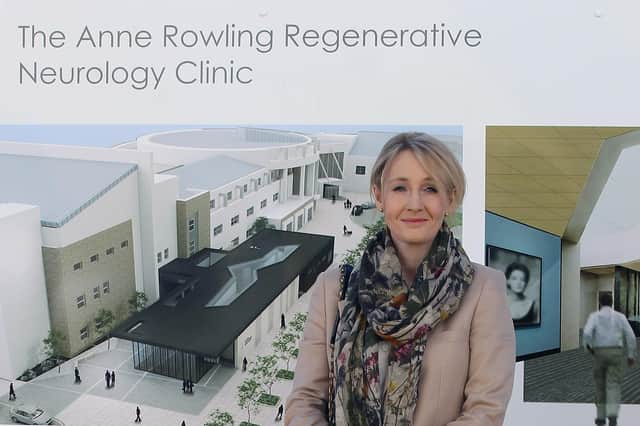Inane corridor chatter has taken on new significance - Dr Zack Hassan


At the Anne Rowling Regenerative Neurology Clinic, where I'm working as a neurology research doctor, you'd be forgiven for thinking we are safely away from the "front-line" – we’re not in the red zone or treating COVID-19 patients after all. Yet even here the pandemic is making a profound impact, and it's worth thinking about why.
We are adapting well to the logistical challenges. In March, recruitment to vital clinical trials was paused temporarily, meaning we may have to wait longer than planned to find out if the treatments we’re testing are effective. But for now, the essential work continues.
Advertisement
Hide AdAdvertisement
Hide AdFor staff, we are home-based unless we have a reason to be at the office, where numbers are limited to comply with social distancing. For patients, who are understandably reluctant to travel, video appointments are now the norm. I can follow up our trial participants, measure their progress and manage any unexpected medical symptoms remotely.
And although the technology has occasional tantrums and takes more time to use - a source of frustration for clinicians and patients alike - it's good enough to keep things going. That the clinic's lab achieved a promising breakthrough in motor neurone disease (MND) during this really deserves credit.
But there have also been personal challenges, and these have been less tangible. I pick up on common themes amongst staff and patients alike; dejection at being stuck at home, bearing multiple pressures over many months, and uncertainty about when the pandemic might get better.
One difference is that, as most of my trial patients are terminally ill, coronavirus is understandably nearer the bottom of their list of things to worry about. That raises the pressure for health professionals to be coping as well as we can, despite the challenges, so we get things right for each patient. But working from home, and the risk of social isolation that comes with it, has brought a tendency for easy tasks to become more difficult. With colleagues no longer omnipresent, shouldering that emotional burden, at times, requires solo effort.
So how does one cope? For me, a shared humanity is a constant source of strength. I look forward to my appointments, which are no longer just a check-up; they're a chance for a mutually beneficial blether, sometimes a chuckle, and often the highlight of my day. Sometimes I'm asked if I think it's ok to get the vaccine, and I always feel useful when I can say yes and give some informed reassurance.
Each day I'm inspired by my colleagues' kindness and supportiveness under pressure, which I'm both deeply grateful for and unashamed to say I rely on. Even inane corridor chatter has taken on new significance, providing a daily boost for wellbeing. We're going through tough times, but I can't help but feel that our direction is a positive one.
The Anne Rowling Regenerative Neurology Clinic is a charitable University of Edinburgh research facility for neurodegenerative conditions include MS, MND, Parkinson’s and early onset dementias. www.annerowlingclinic.org
Comments
Want to join the conversation? Please or to comment on this article.